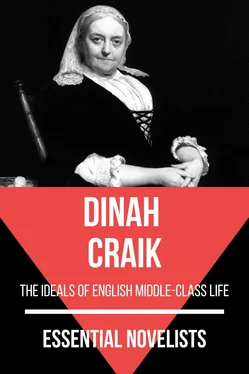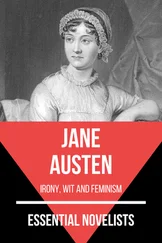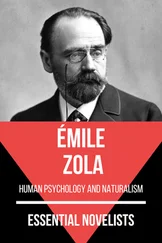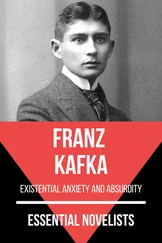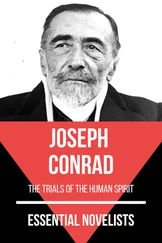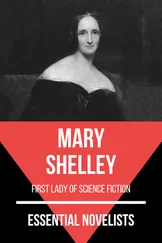Soon I followed John into the parlour. He asked me no questions, made no remarks, only took his candle and went up-stairs.
But, years afterwards, he confessed to me that the touch of that hand — it was a rather peculiar hand in the “feel” of it, as the children say, with a very soft palm, and fingers that had a habit of perpetually fluttering, like a little bird’s wing — the touch of that hand was to the young man like the revelation of a new world.
––––––––

The next day John rode away earlier even than was his wont, I thought. He stayed but a little while talking with me. While Mrs. Tod was bustling over our breakfast he asked her, in a grave and unconcerned manner, “How Mr. March was this morning?” which was the only allusion he made to the previous night’s occurrences.
I had a long, quiet day alone in the beech-wood, close below our cottage, sitting by the little runnel, now worn to a thread with the summer weather, but singing still. It talked to me like a living thing.
When I came home in the evening Miss March stood in front of the cottage, with — strange to say — her father. But I had heard that his paroxysms were often of brief continuance, and that, like most confirmed valetudinarians, when real danger stared him in the face he put it from him, and was glad to be well.
Seeing me coming, Miss March whispered to him; he turned upon me a listless gaze from over his fur collar, and bowed languidly, without rising from his easy chair. Yes, it was Mr. March — the very Mr. March we had met! I knew him, changed though he was; but he did not know me in the least, as, indeed, was not likely.
His daughter came a step or two to meet me. “You are better, I see, Mr. Fletcher. Enderley is a most healthy place, as I try to persuade my father. This is Mr. Fletcher, sir, the gentleman who —”
“Was so obliging as to ride to S— — last night, for me? Allow me to thank him myself.”
I began to disclaim, and Miss March to explain; but we must both have been slightly incoherent, for I think the poor gentleman was never quite clear as to who it was that went for Dr. Brown. However, that mattered little, as his acknowledgments were evidently dictated more by a natural habit of courtesy than by any strong sense of service rendered.
“I am a very great invalid, sir; my dear, will you explain to the gentleman?” And he leaned his head back wearily.
“My father has never recovered his ten years’ residence in the West Indies.”
“‘Residence?’ Pardon me, my dear, you forget I was governor of —”
“Oh, yes! — The climate is very trying there, Mr. Fletcher. But since he has been in England — five years only — he has been very much better. I hope he will be quite well in time.”
Mr. March shook his head drearily. Poor man! the world of existence to him seemed to have melted lazily down into a mere nebula, of which the forlorn nucleus was — himself. What a life for any young creature — even his own daughter, to be bound to continually!
I could not help remarking the strong contrast between them. He, with his sallow, delicately-shaped features — the thin mouth and long straight nose, of that form I have heard called the “melancholy nose,” which usually indicates a feeble, pensive, and hypochondriac temperament; while his daughter — But I have described her already.
“Mr. Fletcher is an invalid too, father,” she said; so gently, that I could feel no pain in her noticing my infirmity; and took gratefully a seat she gave me, beside that of Mr. March. She seemed inclined to talk to me; and her manner was perfectly easy, friendly, and kind.
We spoke of commonplace subjects, near at hand, and of the West Indian island, which its late “governor” was apparently by no means inclined to forget. I asked Miss March whether she had liked it?
“I was never there. Papa was obliged to leave me behind, in Wales — poor mamma’s country. Were you ever in Wales? I like it so! Indeed, I feel as if I belonged altogether to the mountains.”
And saying this, she looked the very incarnation of the free mountain spirit — a little rugged, perhaps, and sharply outlined; but that would soften with time, and was better and wholesomer than any tame green level of soft perfection. At least, one inclined to think so, looking at her.
I liked Miss March very much, and was glad of it.
In retiring, with her father leaning on her arm, to which he hung trustingly and feebly as a child, she turned abruptly, and asked if she could lend me any books to read? I must find the days long and dull without my friend.
I assented with thanks; and shortly afterwards she brought me an armful of literature — enough to have caused any young damsel to have been dubbed a “blue,” in those matter-of-fact days.
“I have no time to study much myself,” said she, in answer to my questions; “but I like those who do. Now, good evening, for I must run. You and your friend can have any books of ours. You must not think”— and she turned back to tell me this —“that because my father said little he and I are not deeply grateful for the kindness Mr. Halifax showed us last night.”
“It was a pleasure to John — it always is — to do a kind office for any one.”
“I well believe that, Mr. Fletcher.” And she left me.
When John came home I informed him of what had passed. He listened, though he made no comment whatever. But all the evening he sat turning over Miss March’s books, and reading either aloud or to himself fragments out of one — which I had expected he would have scouted, inasmuch as it was modern not classical poetry: in fact, a collection of Lyrical Ballads, brought out that year by a young man named Mr. William Wordsworth, and some anonymous friend, conjointly. I had opened it, and found therein great nonsense; but John had better luck — he hit upon a short poem called “Love,” by the Anonymous Friend, which he read, and I listened to, almost as if it had been Shakspeare. It was about a girl named Genevieve — a little simple story — everybody knows it now; but it was like a strange, low, mystic music, luring the very heart out of one’s bosom, to us young visionaries then.
I wonder if Miss March knew the harm she did, and the mischief that has been done among young people in all ages (since Caxton’s days), by the lending books, especially books of poetry.
The next day John was in a curious mood. Dreamy, lazy, mild; he sat poring indoors, instead of roaming abroad — in truth, was a changed lad. I told him so, and laid it all to the blame of the Anonymous Friend: who held him in such fascinated thrall that he only looked up once all the morning — which was when Mr. and Miss March went by. In the afternoon he submitted, lamb-like, to be led down to the beech-wood — that the wonderful talking stream might hold forth to him as it did to me. But it could not — ah, no! it could not. Our lives, though so close, were yet as distinct as the musical living water and the motionless grey rock beside which it ran. The one swept joyfully on to its appointed course: the other — was what Heaven made it, abode where Heaven placed it, and likewise fulfilled its end.
Coming back out of the little wood, I took John a new way I had discovered, through the prettiest undulating meadow, half-field, half-orchard, where trees loaded with ripening cider apples and green crabs made a variety among the natural foresters. Under one of these, as we climbed the slope — for field, beech-wood, and common formed a gradual ascent — we saw a vacant table laid.
“A pretty piece of rusticity — domestic Arcadia on a small scale,” said John; “I should like to invite myself to tea with them. Who can they be?”
Читать дальше
